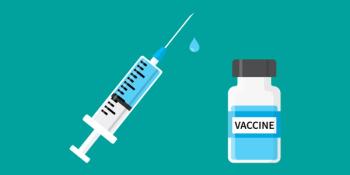
- November/December 2022
Need more sleep? Digital solutions show promise
A digital sleep strategy may reduce sleep problems for children.
A digitally delivered sleep strategy (ie, an app) based on cognitive behavioral therapy (CBT) approaches can reduce childhood sleep problems. This was the finding of a pilot study that investigators conducted after first determining in a preliminary pilot study that new tools are needed to address pediatric sleep problems.
In the first study, about three-fourths (74%) of 218 participants (or their parents) reported sleep problems, usually mild (40.7%) or moderate (24.7%). Participants in the first study were aged 18 years or younger. Parents most often sought help for these problems by consulting their pediatrician (62%), a book (57%), a friend/family member (48%), a sleep consultant (41%), or web search (36%). Almost one-third (30%) of participants indicated the solution they tried did not produce meaningful improvements. Although only 8% of parents found their child’s sleep problems severely distressing, 41% termed them moderately distressing. Sleep problems also were associated with significant monetary costs.
In a second pilot study, investigators enrolled 11 families with sleep problems to receive the mobile app, DrLullaby, which includes pediatric versions of CBT protocols for insomnia, such as sleep restriction, stimulus control, relaxation strategies, worry time, cognitive restructuring, maintenance, and relapse prevention along with training and behavioral management techniques for parents. Participant families were assigned various informational modules depending on the child’s specific sleep problems, with the expectation of completing 1 module each week for 6 to 10 weeks. Each module is linked to more detailed reading materials about the desired changes and instructions on how to implement them. Participants also completed a weekly sleep distress scale and a daily sleep log.
DrLullaby was associated with improvements in key sleep behaviors, including time to fall asleep (72.7%), total time asleep (54.5%), and time awake (63.6%). These figures represent a mean 31.3% and 75.6% change from baseline for time to fall asleep and time awake, respectively, along with a mean improvement of 1 hour and 3 minutes compared with baseline for total time asleep. In addition, the collective distress scale score fell by 35%.
Thoughts From Dr Farber
This is a small study of 11 children, 10 of whom were not infants (ages not specified), so it is not known whether the results will stand up. However, it may be worth looking into further; 6 to 8 weeks of treatment would cost $20 to $30. Some of the authors of the study are affiliated with the company that makes the app, suggesting potential conflicts of interest.
Reference
Tedford SE, Romano L, Gozal D, Medalie L. Digital solutions for sleep problems in children: a pilot study. Pediatr Pulmonol. 2022;57(8):1914-1920. doi:10.1002/ppul.25402
Articles in this issue
about 3 years ago
Worsening acne after isotretinoin treatment in an adolescent girlabout 3 years ago
Lisdexamfetamine is effective in preschoolers with ADHDabout 3 years ago
Pediatric obesity presents complexities in medication dosingabout 3 years ago
Psychosis in an 18-year-old maleNewsletter
Access practical, evidence-based guidance to support better care for our youngest patients. Join our email list for the latest clinical updates.








